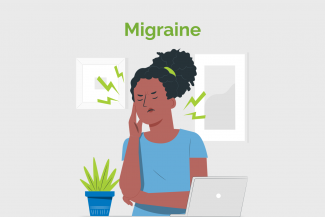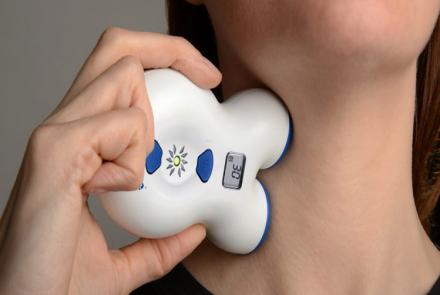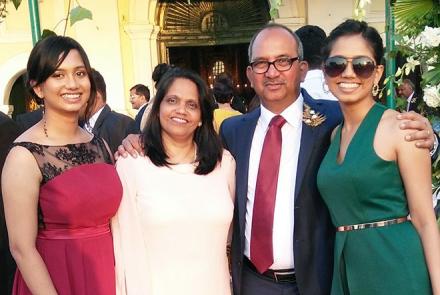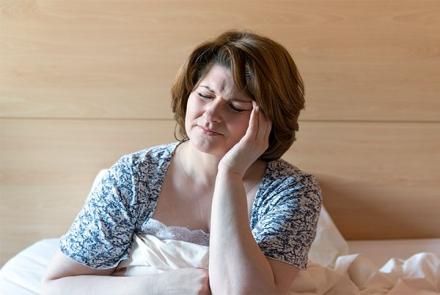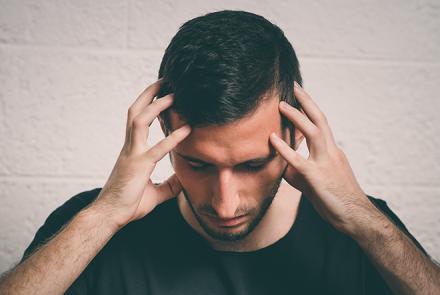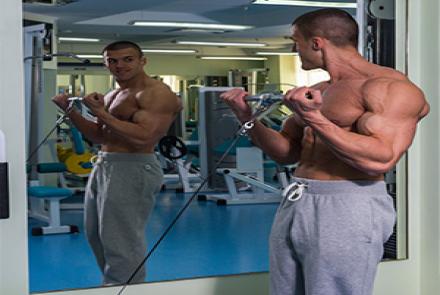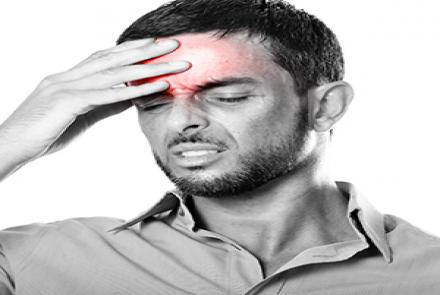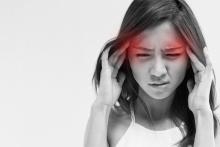
Symptoms
Migraine pain can vary from mild to severe. If mild, patient has a tight feeling in the head and neck. In a severe migraine attack, the patient experiences throbbing pulsatile (pulsating) pain, which spreads to the shoulder and neck, too. Pain in adults may last for 4 to 72 hours, whereas in children it lasts for 2 to 4 hours.
There are 4 phases in a migraine attack. They are:
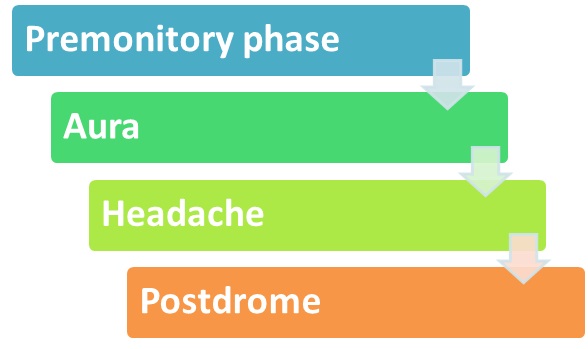
Premonitory phase: This phase is also called prodromal symptom, which includes physical and mental changes that occur few hours or even a few days before a migraine attack. You may feel:
- Malaise
- Fatigue
- Twitching around eyes
- Constipation
- Mood changes
- Irritability
- Restlessness
- Mental slowness
- Hyperactivity
- Increased urination
- Diarrhoea
- Food craving
- Fluid retention
- Dizziness
- Tingling sensation in the fingers, head and on one side of the body, and sometimes throughout the body
- Fever
- Neck stiffness
- Photophobia/ sensitivity to light
- Phonophobia/ sensitivity to sound.
The patient may prefer to sit in a dark and quiet room.
Aura: This is a sense of warning that occurs 5 to 20 minutes before the migraine and lasts for less than 2 minutes. Aura can be visual, sensory or motor disturbances. 99% of migraine patients have visual aura, which includes;
- Photopsia - unformed flashes of light before the eye
- Scotoma – partial loss of sight
- Teicopsia – zigzagging, colored phenomena flashing across the visual field
- Sensory symptoms include paresthesia (tingling, prickling, burning) of hand, arm, face, lips and tongue
- Motor disturbances, like difficulty in speech and difficulty in understanding language
Headache: Single-sided headache, which is often throbbing, pulsatile, episodic, mild to severe in pain intensity, radiating to neck and shoulder region, and aggravated by routine physical activities like turning or bending the neck etc. Periodic episodes of vomiting are also associated with migraine.
Postdrome: This occurs after the headache terminates. This is the last phase in the migraine attack. Patient feels very tired and washed out, with lack of concentration, weakness and craving for food.

